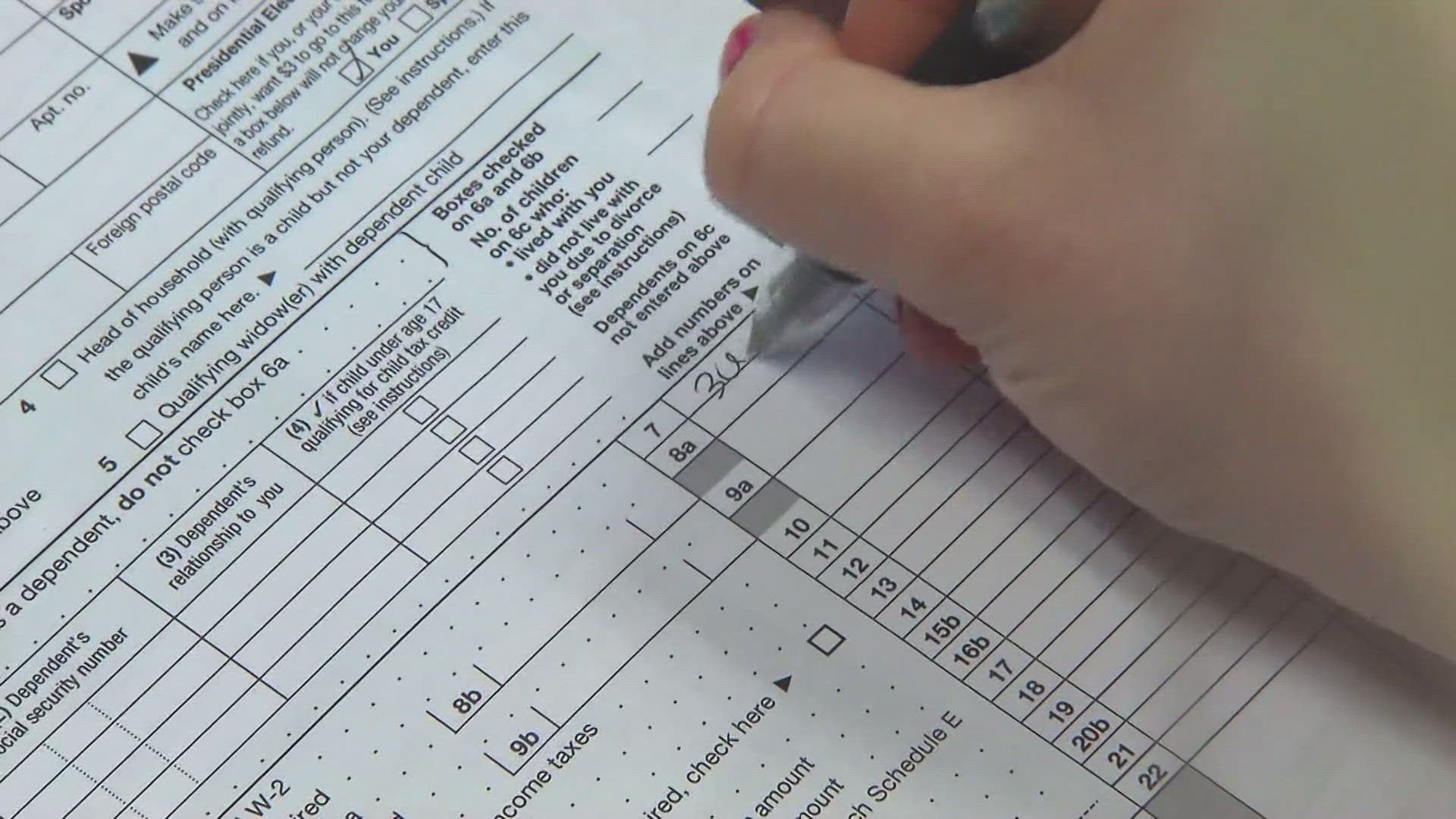MIDLAND, Texas — Tax filing season is well underway and while some people plan to file their own taxes, others may seek professional help to ease the stress of doing them correctly and on time.
When looking for assistance, people have to be on the lookout for tax scammers as well.
Imposter scams remain one of the largest types of scams in the Lone Star State.
Better Business Bureau Director of Partnerships and Community Engagement Devin Benavides said that in the first three quarters of 2023, there was a total of 33,000 imposter claims.
The BBB has calculated $2 billion being lost due to tax scams.
Experts tell NewsWest 9 that the best way to avoid an imposter is by knowing what red flags to be aware of.
"Whenever you're going to prepare your taxes, if you're going to someone else to do it, a company to do it, you want to make sure that they have a tax preparation ID," Benavides said. "Anyone that is preparing someone else's taxes and getting paid for it needs to have that number and that's just a way for you to identify that they are legitimate and that they are not someone that is scamming you."
Scammers often try to steal personally identifiable information.
"That information being your social security number, your birthdate, things you don't really want in the hands of just anybody," Benavides said. "Make sure any time you're emailed any sort of link, but especially right now during this time and it's claiming to be the IRS, do not click on any unsolicited links. A good way to do is to ignore it. If you can't ignore it, you think okay I need to double check on this, just go to your browser and type in the address and then you'll see that it wasn't legitimate."
Another red flag Benavides mentioned was to scan any suspicious emails for the type of language they use. Any grammatical errors or misspelled words would be a huge sign that the email did not come from the Internal Revenue Service.
Technology continues to become a big part of daily routines with text messages for subscriptions and payments, but it is important to understand how the IRS conducts their business.
"Research and see what their methods of operation are, what their methods of communication are," Benavides said. "A lot of times they are not going to just call you or text you without you filing a complaint or having a concern, voicing a concern, or calling and saying you can text me and opting into that. It's not going to be an unsolicited thing."
Consumers also need to be aware of ghost tax preparers that pose as legitimate tax professionals. Always ask for their tax preparation ID and if it is a scam, people can report it.
"We want to know what's happening here and the IRS still wants to know if people are still receiving those text messages, those emails, those phone calls, that way they can continue to combat it," Benavides said. "It's very important, you might feel like everyone gets this, it's very important to report it to both the IRS and BBB.org so we can know what's going on in our area."

